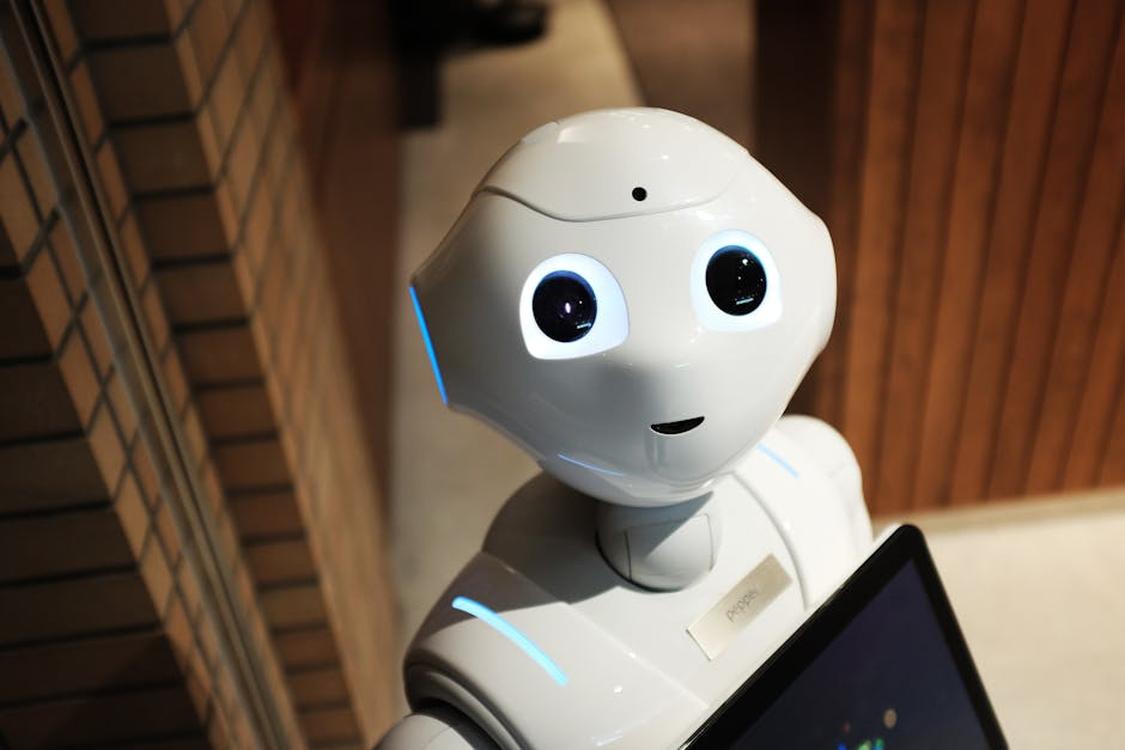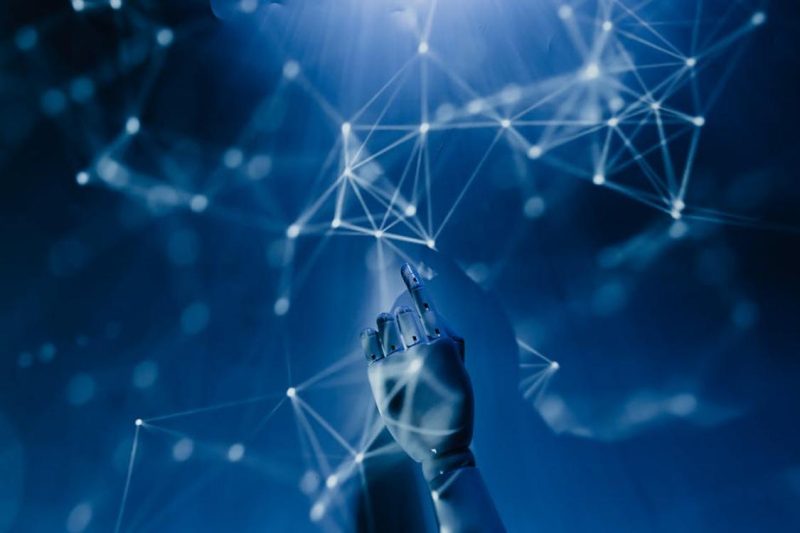AI companions use advanced technologies to interact with users. These include speech recognition, sentiment analysis and language generation.
Users develop a sense of attachment to their AI companions, and they can become dependent on them. This can lead to emotional distress and even mental health issues. It also hinders social skills development.
Artificial Intelligence
Artificial Intelligence is increasingly able to fill roles that have traditionally been reserved for humans, including those of friends, confidants and even romantic partners. However, this development raises concerns about the impact of AI companionship on human relationships and how they personalize their responses based on user preferences.
One of the most controversial uses of AI companionship is chatbots that are designed to provide emotional support and create a sense of companionship with users. These apps can respond to user text conversations, mimicking the way people communicate, and they often learn over time to better understand and predict the responses of their users. Moreover, some AI systems like Replika are designed to simulate intimate and romantic relationships with their users.
These technologies are attracting some individuals who might not be comfortable engaging in traditional human relationships, including those with disabilities. For example, a company called Gatebox has developed an AI avatar that can send text messages throughout the day, interact with smart home devices and provide a sense of presence for those who live alone. And another company, Harmony by RealDoll, has created a lifelike robot that can interact with users through conversation and physical touch.
Despite these concerns, many experts believe that AI can play an important role in helping people who struggle to build relationships and maintain connections. However, they also warn that these technologies should be used as a stepping stone to more meaningful interactions and should never replace human relationships.
Lisa Bahar, a licensed psychotherapist from Newport Beach, California, believes that it is critical to prioritize human-to-human interaction and avoid turning to AI companionship as a solution for loneliness. Moreover, she believes that it would be more beneficial to develop AI systems that reside on users’ own digital devices rather than in the cloud. This way, the technology would be less susceptible to hacking and unauthorized access of personal information.
Ultimately, Bahar believes that the positives of AI companionship must outweigh the negatives. She hopes that people will be honest about what draws them to AI relationships and then set boundaries and parameters around those relationships to keep them safe and wholesome.
Machine Learning
Machine learning, a subset of artificial intelligence, is the technology that enables AI companions to develop over time. This is done through data-driven algorithms that identify patterns, preferences and emotions to create more personalized interactions. These AI companions can also learn from their interactions with users and adapt their behaviors to improve the experience. This personalization is key to building emotional connection, as it allows AI companions to provide the right type of support at the right time.
A recent study found that people with depression and other mental health disorders are less likely to report feelings of loneliness if they use an AI companion for emotional support. In addition, AI companions can help reduce isolation and promote socialization, particularly for older adults who live alone or have limited access to family and friends. However, it’s important to note that AI companions do not replace human relationships and cannot replace the deep level of empathy that comes from real-life connections.
Several advanced technologies are enabling the rise of AI companions, including machine learning, natural language processing and robotics. Robotics adds a physical dimension to AI companionship, creating machines that can move, gesture and express emotion. In some cases, these companions can even act as life-saving tools. For example, the company Replika has developed a social robot named Xiaoice that can help a person talk through suicidal thoughts and receive advice from a therapist. The study found that 3% of the people who used Xiaoice reported that it stopped their suicidal ideations.
While these benefits are significant, critics worry that the reliance on AI companionship could intensify isolation and substitute genuine human relationships with virtual ones. They also worry that children growing up relating to AI companions will not acquire the equipment needed for empathic connections. For instance, parents are already concerned that kids interacting with digital assistants like Alexa and Siri may develop rude speech habits or become accustomed to arguing with their computers.
Experts are warning that relying too much on AI companions could lead to an unhealthy relationship with humans, especially in vulnerable populations. For example, if young people begin to see AI chatbots as their primary relationships, they may feel that human relationships are inherently messy and difficult to maintain and may prioritize their AI companions over the needs of their friends and loved ones.
Social Interactions

Artificial intelligence is emerging as a powerful tool that can provide emotional support, especially for individuals who are experiencing isolation and depression. However, it is important to view this technology as a supplement to human relationships rather than a replacement. For example, the ability of AI to respond empathetically and customize its responses can help combat loneliness by addressing specific needs and providing personalized comfort. Its 24/7 availability also makes it a valuable source of support for individuals who are struggling to maintain or find meaningful human connections.
Furthermore, AI can provide a sense of companionship and social engagement by offering an outlet for self-expression that is nonjudgmental and responsive to the user’s moods. It can also serve as a learning tool for developing interpersonal skills that can be transferred to real-world interactions. However, AI is not equipped to handle the complexity and unpredictability of human relationships. This may make it more difficult for users to cope with the ups and downs of real-life interactions, such as arguments or feelings of misunderstood or mistreated behavior.
Some individuals may also feel a desire to replace their human relationships with AI companions because they offer a calming, ever-present presence. This can be helpful for people with anxiety or depression, as it can alleviate symptoms by reducing stress levels and acting as a distraction. However, using AI companions for these purposes could lead to an unhealthy dependency and exacerbate loneliness, which is not good for mental health.
In this episode of Good News Week, Mike and Angela discuss the benefits and challenges of relying on AI for emotional support, writing assistance, and even halting suicidal ideation. They also debate whether generative AI like ChatGPT and Claude can truly replicate the depth and unpredictability of human relationships.
AI is transforming our lives at a rapid pace, and it is increasingly being used to solve complex problems and provide companionship. While these advancements are promising, they raise ethical questions about the nature of our relationship with the technology and how it should be developed.
Human-Companion Relationships
With their ability to learn and adapt over time, AI companions are becoming increasingly sophisticated. This technology is enabling these virtual friends to better understand and respond to user input, boosting engagement. Additionally, advanced natural language processing technology allows them to communicate in a way that feels conversational and authentic.
This is a significant step forward, as it makes AI companions more relatable and human-like. However, these technologies are still limited in their ability to recognize and respond to complex emotions. Additionally, they can sometimes exhibit unexpected or unintended behavior. This can be upsetting for users and can make them feel more dependent on their AI companions.
As a result, some people worry that reliance on AI companions could intensify loneliness and harm mental health. They are also worried that if we spend so much time with our digital companions, we may lose interest in real relationships and neglect other important aspects of life.
The emergence of AI companions has raised intriguing questions about the future of human connections. Can a machine truly understand your joys and sorrows on a deep level, challenge you intellectually, or offer a shoulder to cry on? These concerns are valid, but it is unlikely that an AI companion can replace a human relationship.
Instead, AI companions can serve as a valuable stepping stone toward genuine friendships. They can provide a nonjudgmental space for people to express themselves and can help them develop the skills they need to connect with others in person.
AI companions can also boost entertainment by providing personalized content based on user preferences. They can also recommend movies, music, and books that are tailored to specific interests. Additionally, they can play games and tell stories to keep users entertained.
Overall, AI companions are a promising new trend in tech. They can improve quality of life by relieving loneliness, enhancing entertainment, and helping users with daily tasks. They are becoming more common and can help people lead healthier, happier lives. However, it is important to balance innovation with the understanding that AI cannot fully replicate the depth and authenticity of a human relationship.








